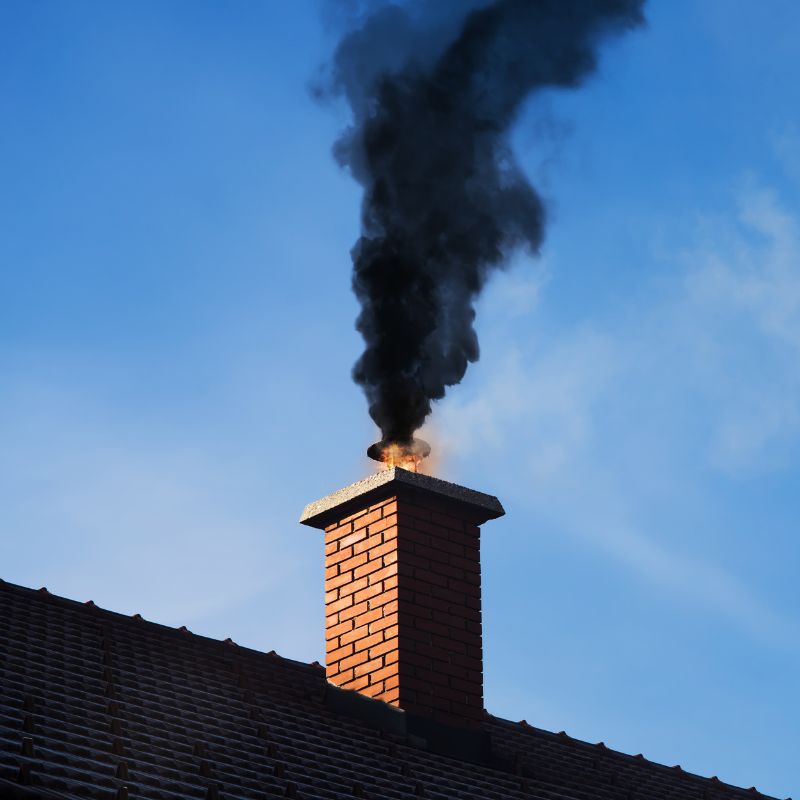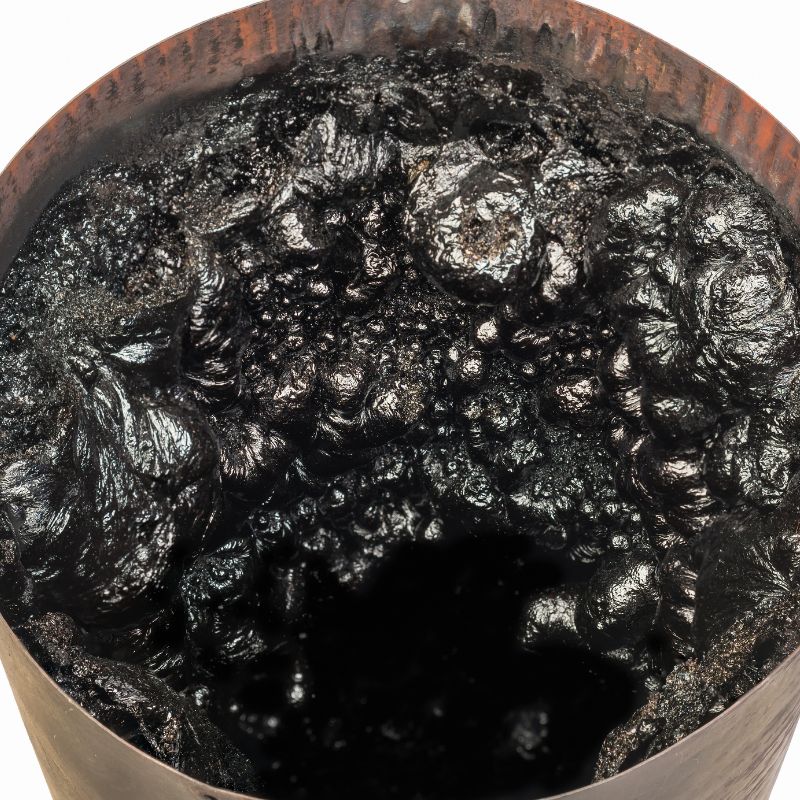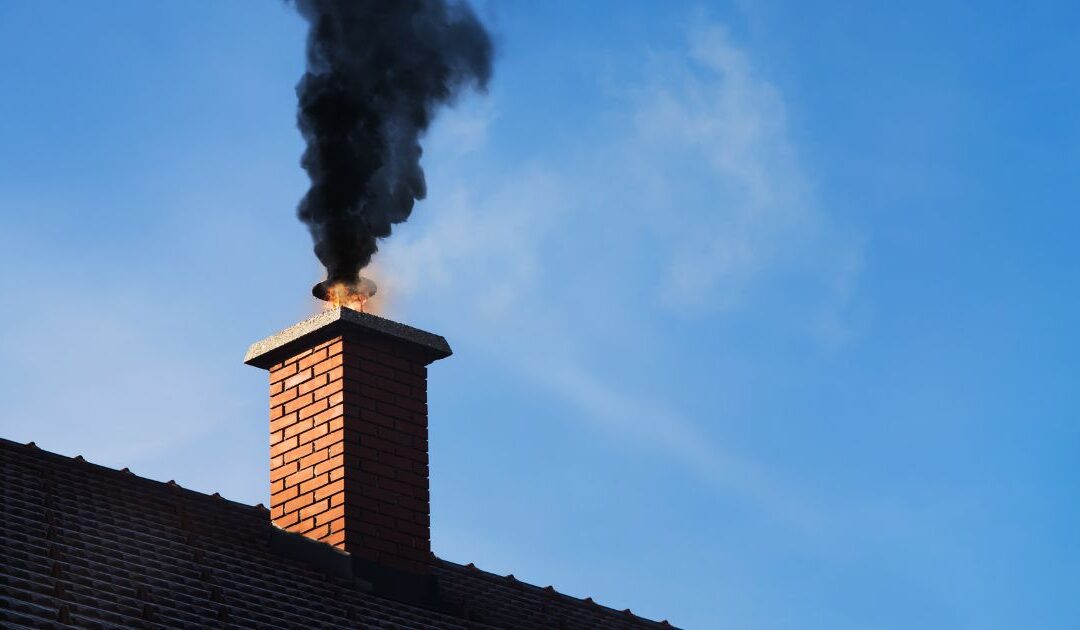The thought of experiencing a chimney fire is unsettling, and many wonder how they should react if they find themselves in this position. Will the fire eventually burn itself out? Should emergency services be called? Should the homeowner try to put out the chimney fire?
We’ve got answers to all of your chimney fire questions, but first.. Will a chimney fire burn itself out?
The better question is, Should a chimney fire burn itself out? …to which the answer is a big no.
While any fire will eventually burn itself out, it doesn’t mean that letting your chimney fire burn out is the best or safest option. The longer it burns the more damage it’s likely to do and the more risk your household faces, so if you notice a chimney fire, you should call emergency services immediately – and do not attempt to put it out yourself.
Need chimney services or have more questions? Reach out. We’d love to be there for you.
How Do I Know If I’m Having a Chimney Fire?
Now, here’s where things get tricky… The fact is, you might not know if you’ve had a chimney fire. Most assume these would be these loud, obvious events, but most are slow-moving and quiet, happening unbeknownst to the homeowner.
Signs a chimney fire is actively happening include…
- Loud, cracking popping noises, that might resemble fireworks or gunshots
- Flames or sparks shooting out of the chimney
- An unusual amount of smoke coming from the chimney
- Thick, dark smoke coming out of your chimney
- A strong, acrid burning odor (different than a normal burning-wood smell)
- Excess heat in the walls near your fireplace or stove

And remember: If you suspect a chimney fire, it’s essential to take immediate action to ensure the safety of your home and family. Evacuate the house, call the fire department, and do not attempt to extinguish the fire yourself.
What Are Signs a Chimney Fire Has Occurred?
Knowing if a chimney fire is occurring is important, but since most will happen without your knowledge, knowing the signs that one has already occurred is equally – if not more – important. Signs your chimney has had a fire include:
- Puffy or honeycombed creosote deposits inside your chimney
- Damaged or dislodged flue tiles, or pieces of tile in the fireplace or stove
- A warped, melted, or discolored chimney cap
- Exterior chimney damage, such as cracked or spalling bricks, gaps in the mortar joints, or blackened areas.
- Cracked masonry materials throughout your chimney
- Heat damage to the walls or ceilings near your chimney
- Lingering burnt wood-type odors or unpleasant smoky smells, even when the appliance is off
What Should I Do If I’ve Had a Chimney Fire?
Experiencing a chimney fire can be a frightening and dangerous situation. Stay prepared… Here’s what you should do if you’ve had a chimney fire:
- Close Damper & Air Vents: If it is safe to do so and you have not already done it, close the damper and any air vents to the fireplace or stove. This will help limit the oxygen supply to the fire and reduce its intensity.
- Evacuate: If you suspect or detect a chimney fire, evacuate everyone from the house immediately. Ensure that all occupants are safely outside and away from the building.
- Call the Fire Department: Once everyone is safely outside, call the fire department or emergency services immediately. Inform them that you believe you’ve had a chimney fire and provide them with your address and any relevant details.

4. Monitor the Situation: While waiting for the fire department to arrive, keep a safe distance from the house and monitor the situation from a vantage point where you can observe any changes in the fire or smoke.
5. Stay Away: Do not re-enter the house until the fire department has arrived, assessed the situation, and determined that it is safe to do so. Chimney fires can cause structural damage and may pose ongoing risks even after the flames have been extinguished.
Note: Do not attempt to extinguish the chimney fire yourself. Chimney fires can burn very hot and can be difficult to control. Leave the firefighting to the professionals who are trained and equipped to handle such situations safely.
How Can I Prevent Chimney Fires?
🔥 Book chimney inspections and sweeps. Schedule annual inspections and sweepings with a qualified chimney company, so they can check for creosote, blockages, or any damage.
🪵 Maintain proper wood-burning practices. Use only seasoned hardwoods for burning in your fireplace or stove. Seasoned wood burns cleaner and produces less creosote buildup than green or wet wood.
🌬️ Maintain proper draft and airflow. Ensure that your fireplace or stove has adequate airflow to support efficient combustion and reduce the buildup of creosote.
🌡️ If possible, monitor your chimney and fireplace temps. Install a chimney temperature gauge to monitor the temperature inside the chimney, and be alert to rapid increases in temperature.
🎩 Install a properly-fitted chimney cap. Chimney caps keep your chimney free out of outside debris, which can be flammable and increase your risk of experiencing a chimney fire.
Schedule Your Next Chimney Inspection With Us
Ready to know where your chimney and fireplace stand? Book your next chimney sweep and inspection with our team of experts. Give us a call now or reach out online – we’re here to help.


Recent Comments